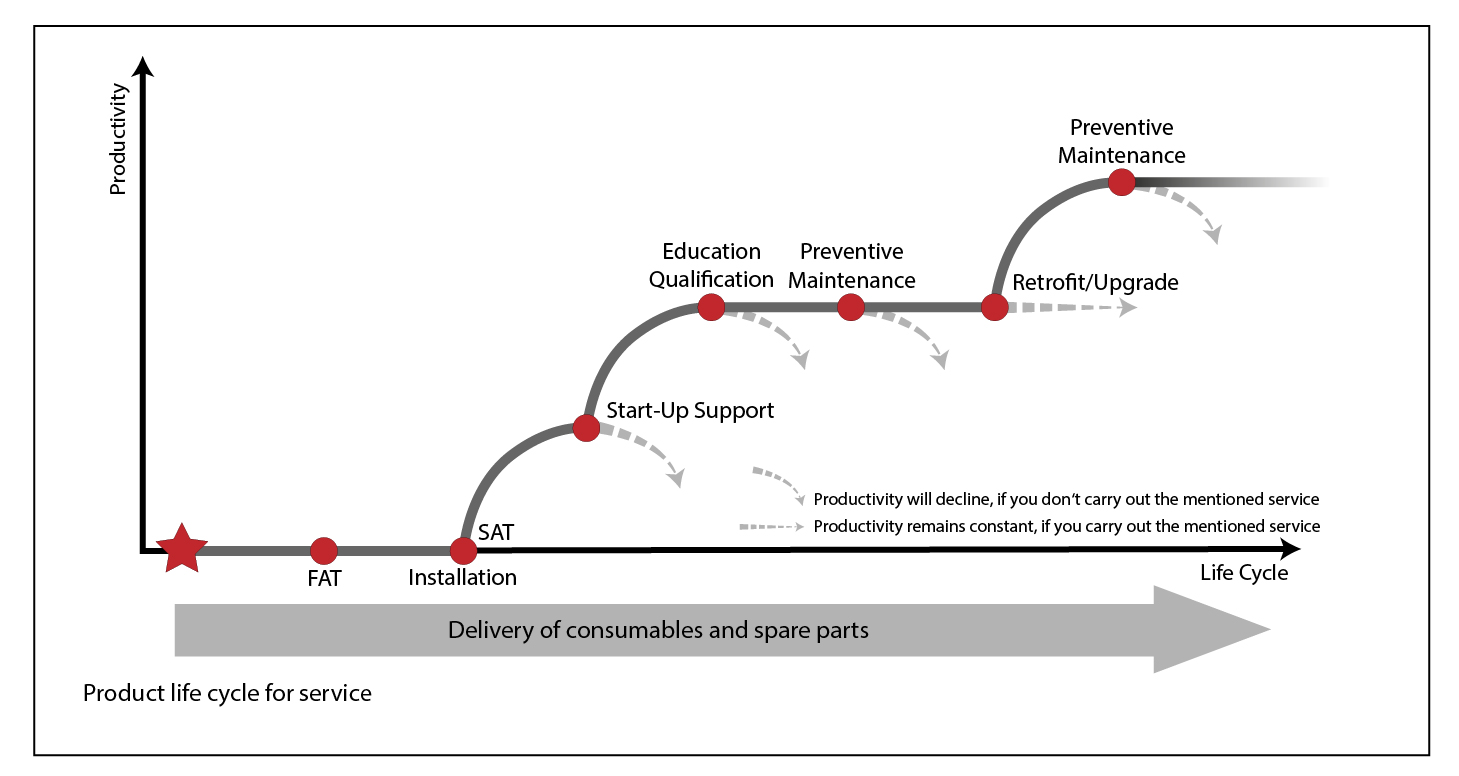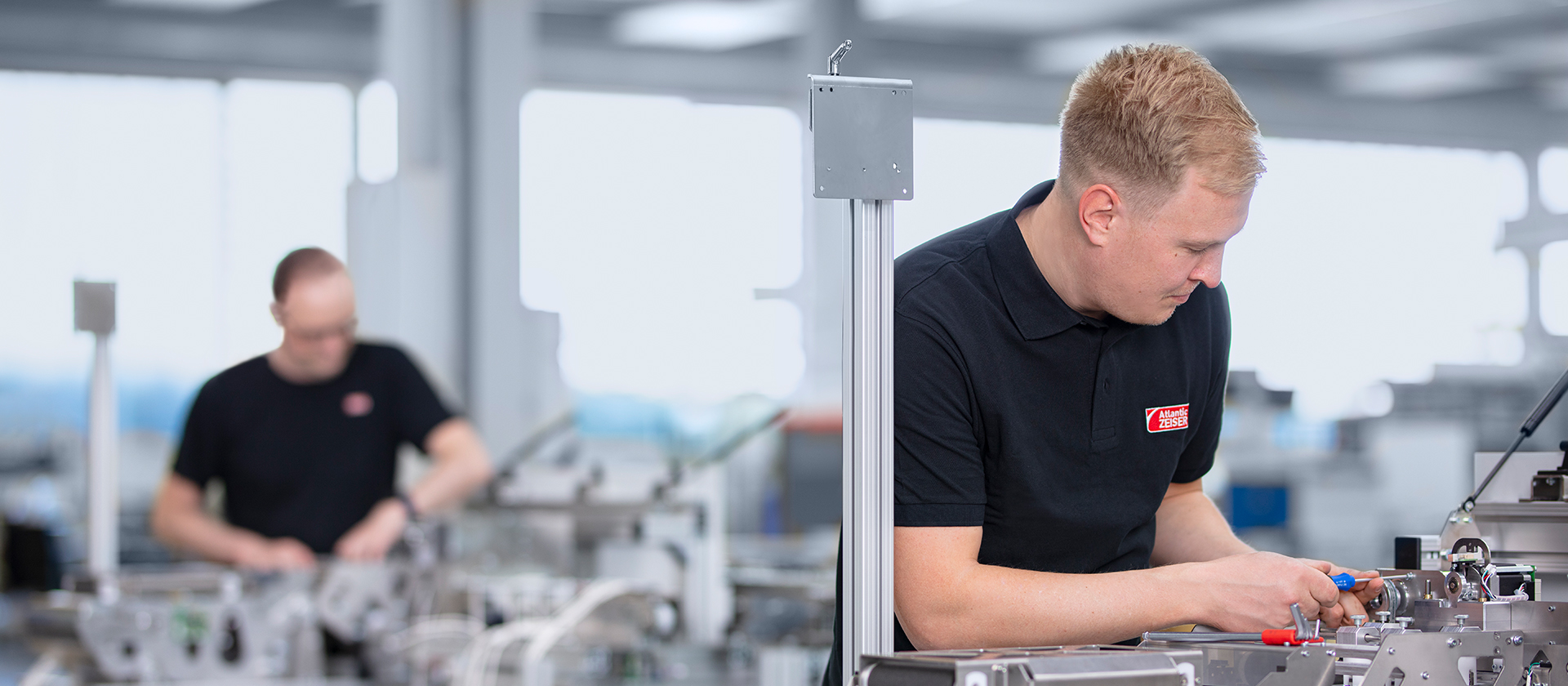“We offer productivity, not just service”
Why unplanned machine downtimes entail enormous costs – and what can be done about them.
There is a German proverb warning against making risky behavior a habit: “You can take the jug to the well, but only until it breaks.” Such way of acting is still very common when it comes to machinery. They run and run – with little to no time set aside for maintenance – and when they break, that's when unplanned downtime happens. And with them, unplanned costs. Production comes to a halt, deadlines are missed, customers are dissatisfied, and planned turnover evaporates.
Car owners take it as a matter of course that their vehicles require service at prescribed intervals even though the average car is driven one hour a day and parked the other 23. That ratio is reversed for many machines. But machine owners often try to bypass services. “Service is critical to maintaining productivity,” says Dirk Otte, Head of Customer Service at Atlantic Zeiser. “Years of experience have shown us that if specific measures during a machine’s life cycle, such as production launch support, trainings, and of course a preventive service and maintenance schedule are implemented, machine productivity is maintained or can even increase. If these measures are not performed at the specified time, productivity inevitably falls.”

But Dirk Otte remains confident: various supply chain issues have made it obvious to many companies just how painful unplanned production line downtimes can be. “Many of our customers have become very sensitive to this risk,” he says. “They have begun to actively approach us about it, asking for helpful solutions to avoid unplanned production stops.”
Preventive maintenance has two main advantages. Number one, it can be planned: “There are times in any company when operation is very limited or the machine doesn’t run at all,” says Dirk. Weekends, nights, or typical vacation periods, for instance. Or there may be plant-specific seasonal fluctuations that naturally give way to preventive service. “This means that servicing does not need to interrupt production.” The other advantage is that the costs of preventive service are defined exactly. They become part of annual planning and are entirely transparent. This means, the production cost of the finished product can be calculated more precisely. Preventive service drastically reduces the risk of failure and consequently the generation of unplanned costs. “This quickly makes it obvious that costs for preventive service are extremely low”, says Dirk.
In the manufacturing industry, service is not just about minimizing downtime – it has a lot to do with taking productivity to the maximum. "We offer productivity, not just service," is how Dirk sums it up. To do that, service providers need to be aware of multiple factors affecting service supply – like specific production needs, equipment availability and individual customer needs. This requires listening to the customer and reacting to a variety of needs. But that should be business as usual for service.







